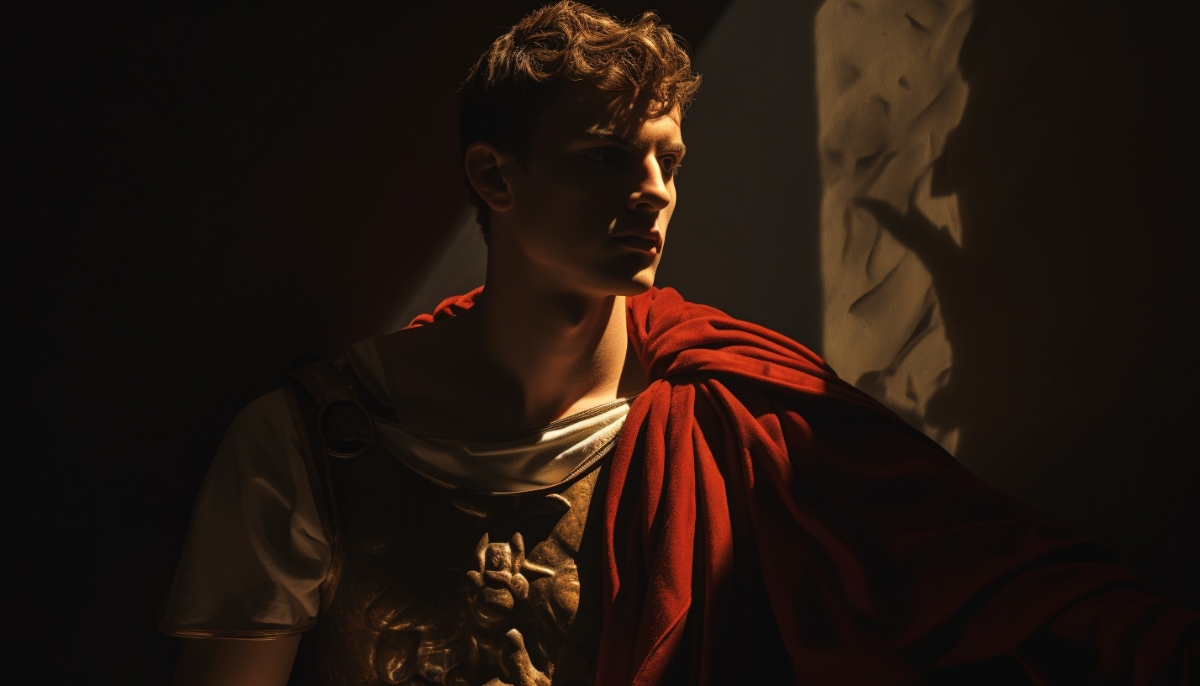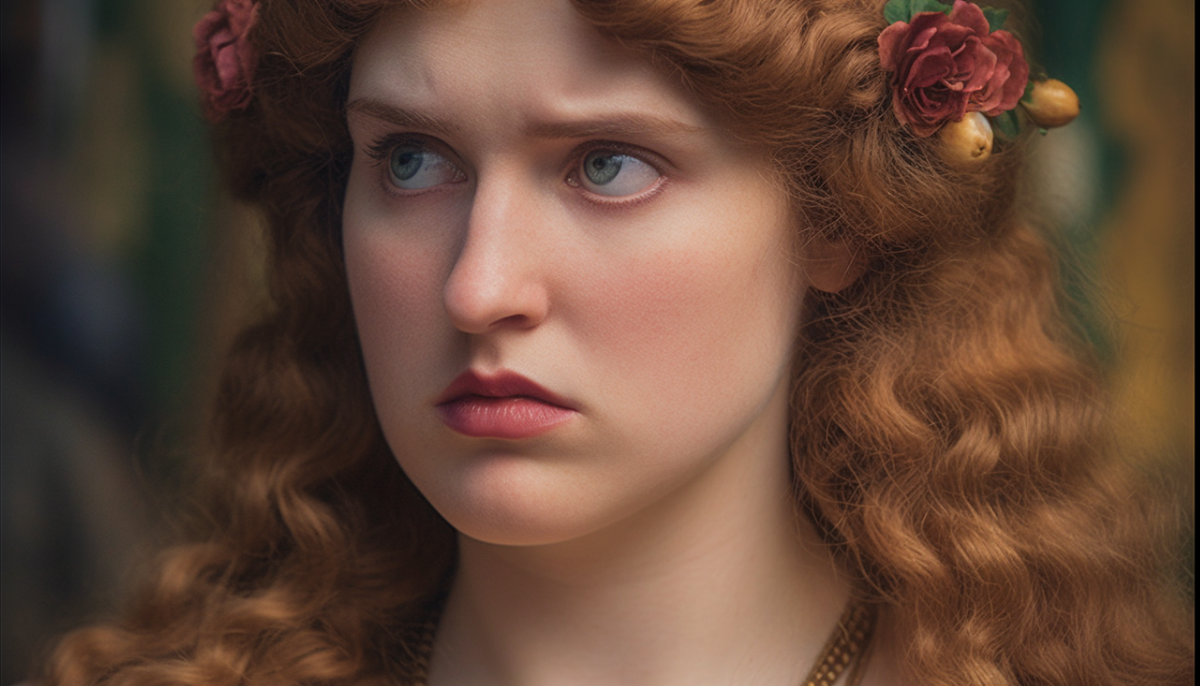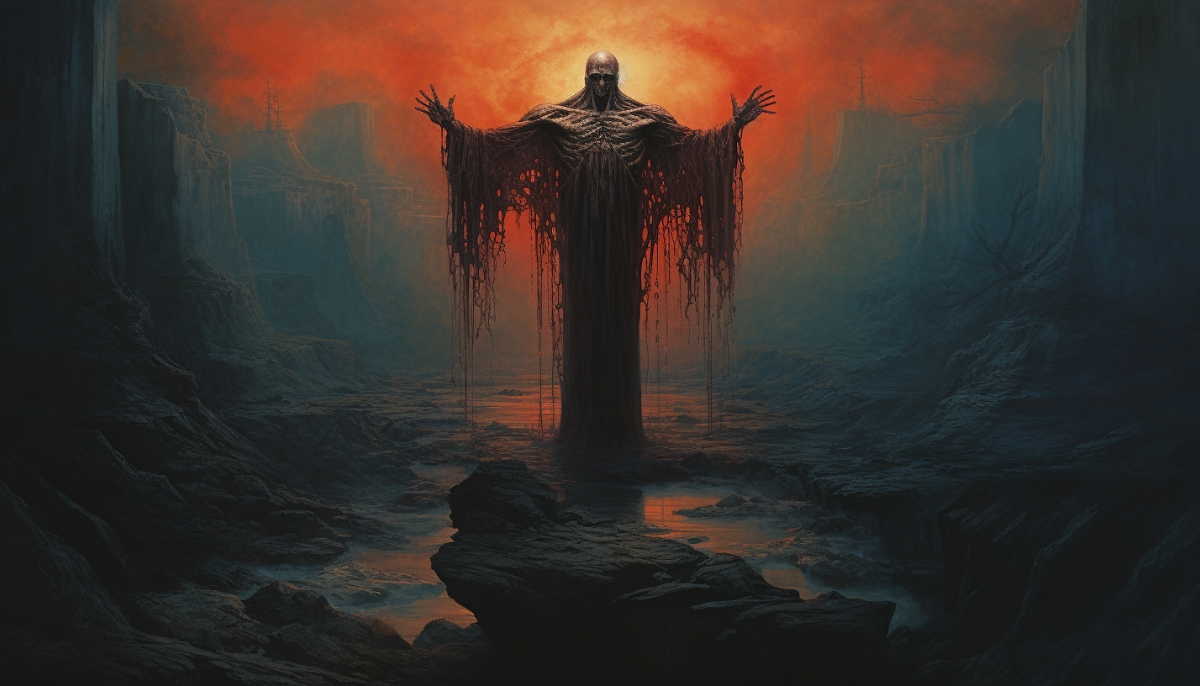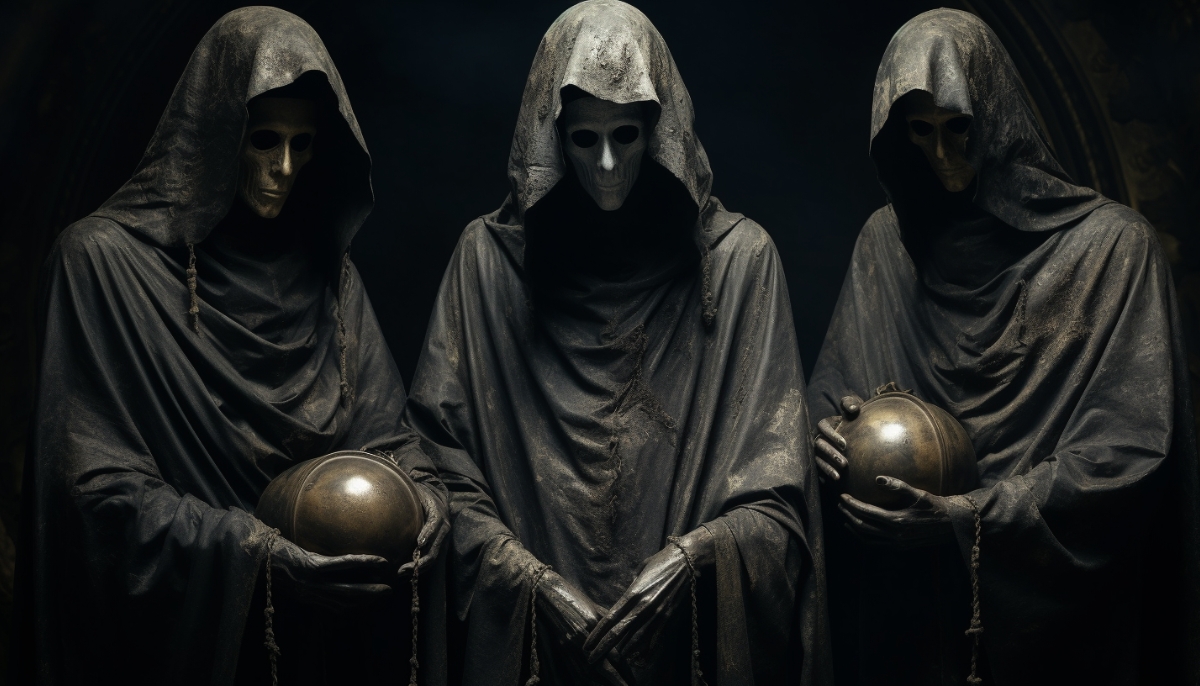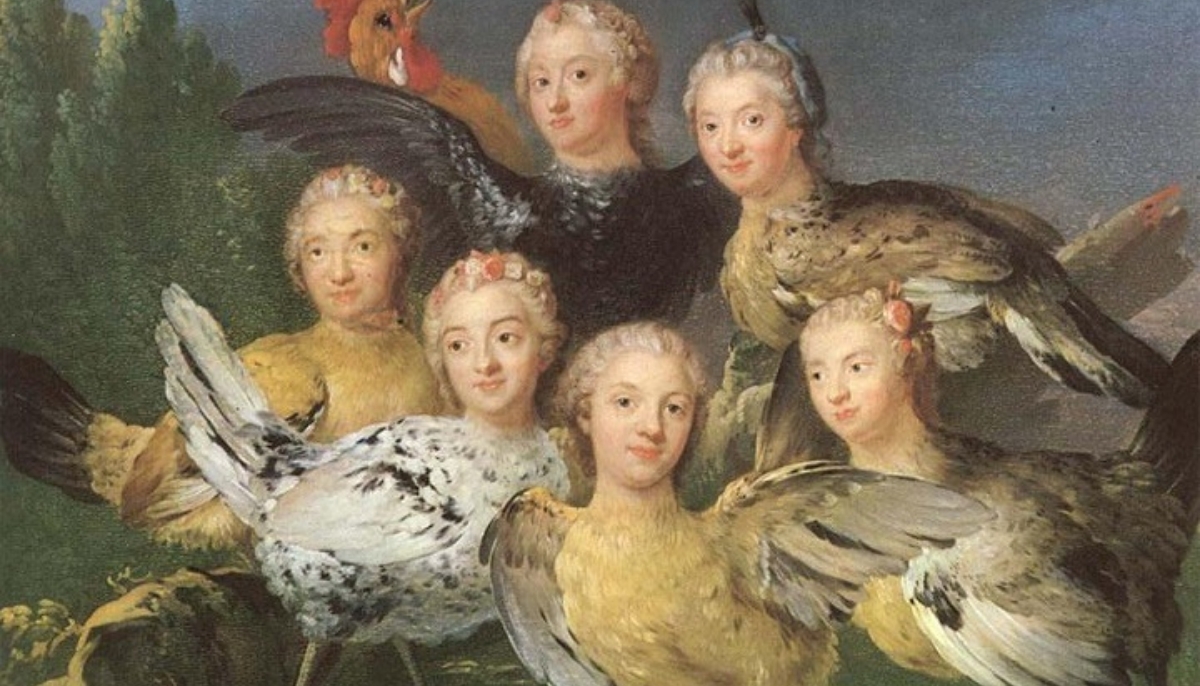Emperor Caligula, the third ruler of the Roman Empire, has become infamous in history for his erratic behavior and extreme cruelty.
Though initially hailed as a savior following the oppressive reign of Tiberius, Caligula’s reign quickly devolved into a reign of terror, marked by a series of bizarre and grotesque acts that shocked even his contemporaries.
From his obsession with incest and his penchant for public executions to his bizarre behavior in court, countless stories of his cruelty and insanity have survived through the ages.
In this article, we’ve compiled a list of the ten most unsettling facts about Caligula, exploring the depths of his depravity and asking whether he truly was Rome’s craziest Emperor.
1. Caligula Considered Elevating His Beloved Horse to the Role of Consul
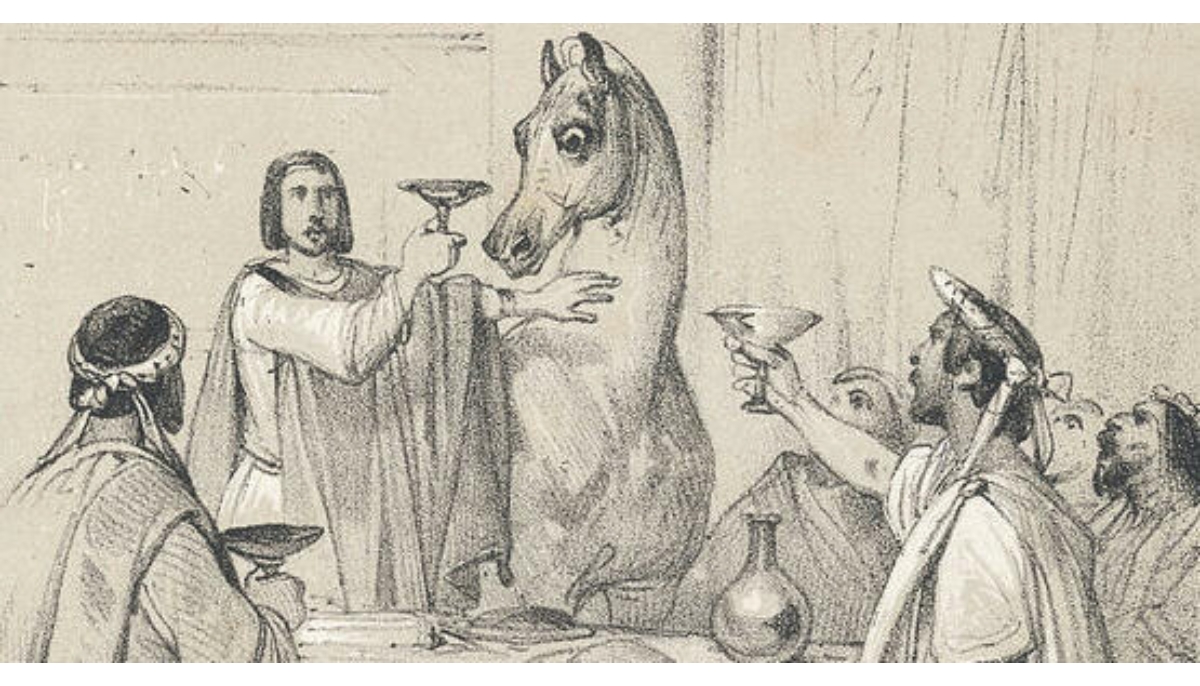
Emperor Caligula’s fondness for his horse Incitatus has been one of his reign’s most bizarre and intriguing aspects. Not only did he lavish the animal with luxurious treatment, including feeding him oats mixed with gold. He also raised him to the level of a priest and even considered making him the highest-ranking official in the Roman Empire.
He had a special stable built for Incitatus, complete with a marble manger. The horse was also adorned with jewels and other precious ornaments, making it one of the most well-cared-for animals in the empire.
By treating an animal with such pomp and ceremony, he was essentially mocking the aristocrats who considered themselves above the common people.
In addition, his decision to invite Rome’s dignitaries to dine with Incitatus was likely a calculated move to humiliate his enemies and show them that he had complete control over the empire.
2. Caligula Fed the Gladiatorial Audience to the Lions

The gladiatorial games were a popular form of entertainment that involved the violent deaths of prisoners, slaves, and even animals in the amphitheater. However, Caligula took this bloodthirsty tradition to a new level of cruelty and madness.
In one shocking incident, Caligula ordered his guards to force a section of the crowd into the arena during a gladiatorial event. This group of innocent Roman citizens was then attacked by a collection of wild animals, including lions, as the bloodthirsty audience cheered on.
3. It Was a Capital Crime to Mention Goats Around the Emperor
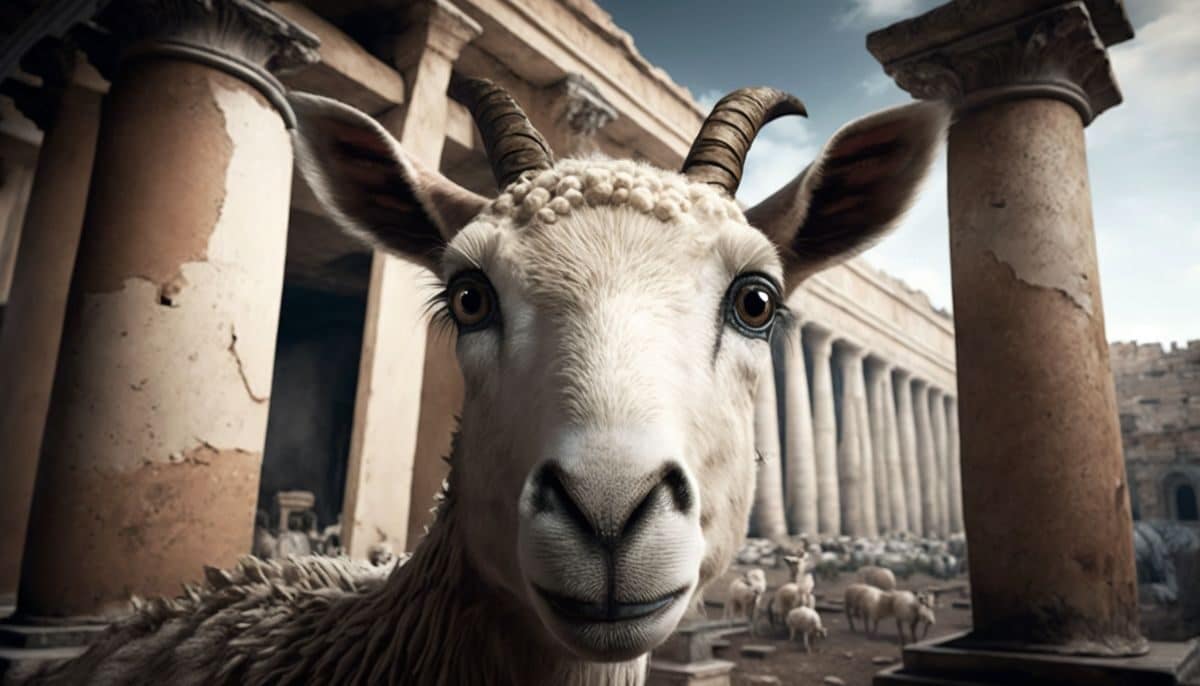
Despite his status as one of the most powerful men in the Roman Empire, Emperor Caligula was known for his less-than-appealing physical appearance. Historical accounts describe him as balding, excessively hairy, thin, and pale.
Caligula was believed to be self-conscious about his looks and went to great lengths to conceal his physical imperfections. One way he did this was by creating marble busts that portrayed him as a handsome and regal figure with a full head of hair and a chiseled jawline.
These busts were often displayed throughout the empire, as a propaganda tool to reinforce Caligula’s power and prestige.
Despite these efforts, Caligula was still sensitive about his appearance. In one instance, he banned the mention of goats in his presence – a common insult in ancient Rome – under penalty of death.
4. Caligula Declared War on Neptune and the British Channel
Military conquest and expansion were key components of Roman imperial policy. In his bid to establish himself as a great military leader, he set his sights on the island of Britannia, which had long been a thorn in Rome’s side.
Despite his ambitious plans, Caligula’s invasion of Britannia was short-lived and ultimately unsuccessful. Upon arriving on the English Channel, he encountered stormy seas that made it impossible to launch a full-scale attack. Not one to be deterred, Caligula quickly improvised a bizarre and seemingly ridiculous plan.
In a fit of bravado, Caligula declared that Neptune, the god of the sea, had declared war on Rome. He then ordered his troops to launch a full-scale attack on the sea itself, using their weapons to stab and strike at the waves. To commemorate this supposed victory, Caligula had his soldiers collect sea shells to symbolize their triumph.
Caligula returned to Rome and held a magnificent triumph in his own honor. He was hailed as a great military leader and showered with praise and adulation from the people of Rome.
5. Caligula Likely Committed Incest With All Three of His Sisters
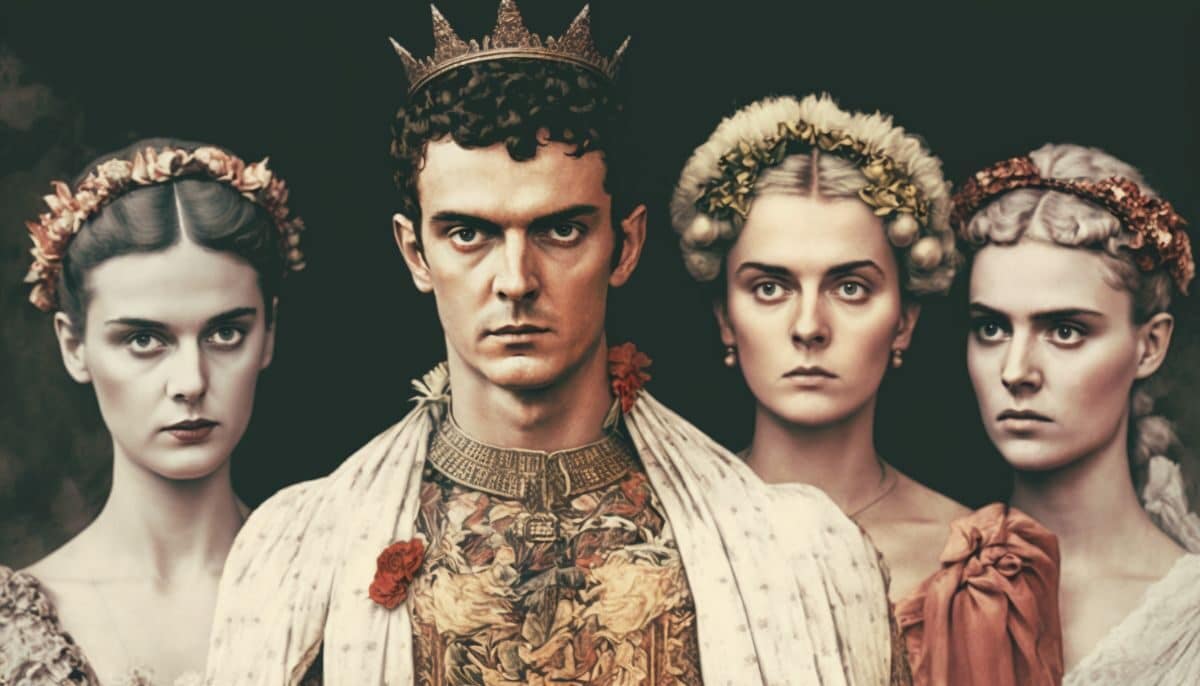
Caligula’s relationships with his sisters were controversial. While some historians have suggested that he engaged in incestuous relationships with them, others have argued that such claims are nothing more than salacious rumors.
Regardless of the truth of these rumors, it is clear that Caligula was deeply devoted to his sisters, particularly Julia Drusilla.
According to ancient sources, Caligula was devastated by Drusilla’s death at the age of just 21, and he reportedly went into a deep depression following her passing. To honor her memory, Caligula deified Drusilla and had her enshrined in the Roman Pantheon as a goddess.
Meanwhile, Caligula’s other sister, Agrippina the Younger, would go on to become one of the most powerful women in Roman history. She would eventually engineer the rise of her own son, Nero, to the imperial throne. He was another contender for the title of Rome’s craziest emperor.
6. Executed a Priest at a Religious Sacrifice
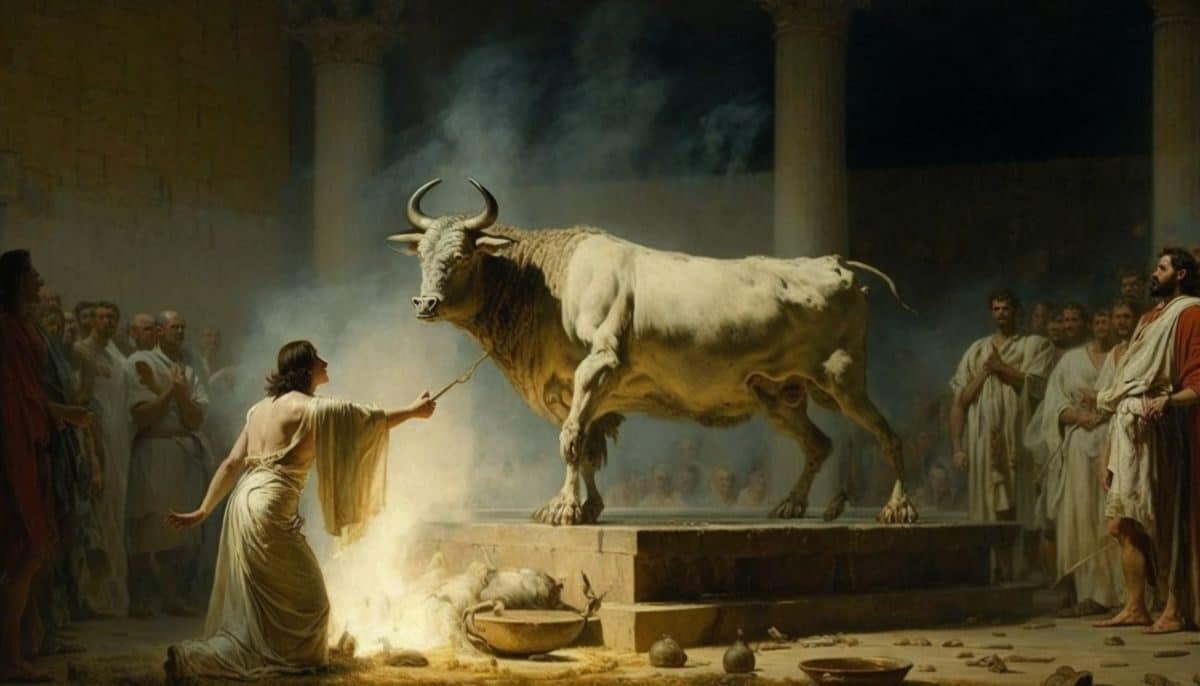
Sacrificing animals was common in ancient Rome and considered an important part of their pagan religion. During his reign, Caligula attended many such ceremonies, but one incident is disturbing.
As the ceremony proceeded and the priest held the bull’s head steady, Caligula suddenly took the mallet and brought it down on the priest’s head instead of the bull.
The violent act stunned the crowd, but Caligula reportedly laughed as the priest fell to the ground, bleeding to death.
7. Humiliated Senators By Sleeping With Their Wives
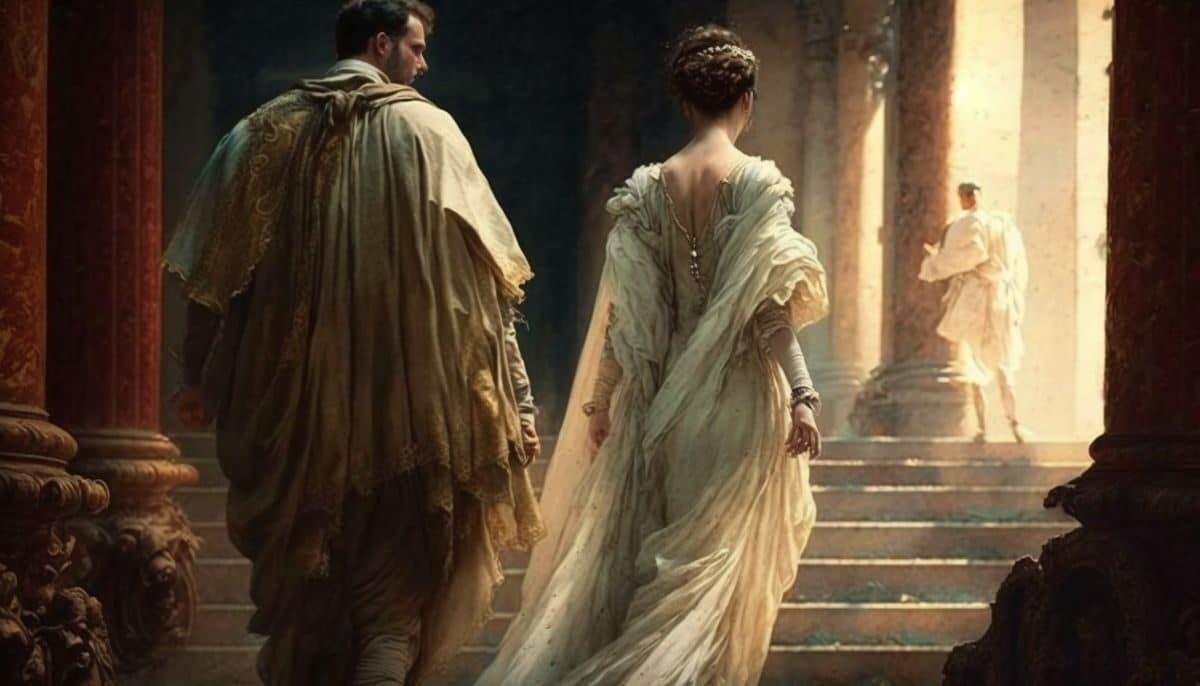
Caligula’s hatred for the Senate was no secret, and he found ways to use his power to humiliate its members. He regularly invited senators to dine with him, only to leave the table with their wives, later returning to finish his meal.
The Emperor’s cruel behavior did not stop there. He would also force men to divorce their wives at will, further demonstrating his power over them.
Even his own marriages were not immune to his whims. When he heard about the beauty of Lollia Paulina’s grandmother, he forced her to divorce her husband and marry him.
The marriage lasted only six months, but it was enough time for Caligula to assert his dominance over another victim.
8. Constructed Two Vast Pleasure Barges
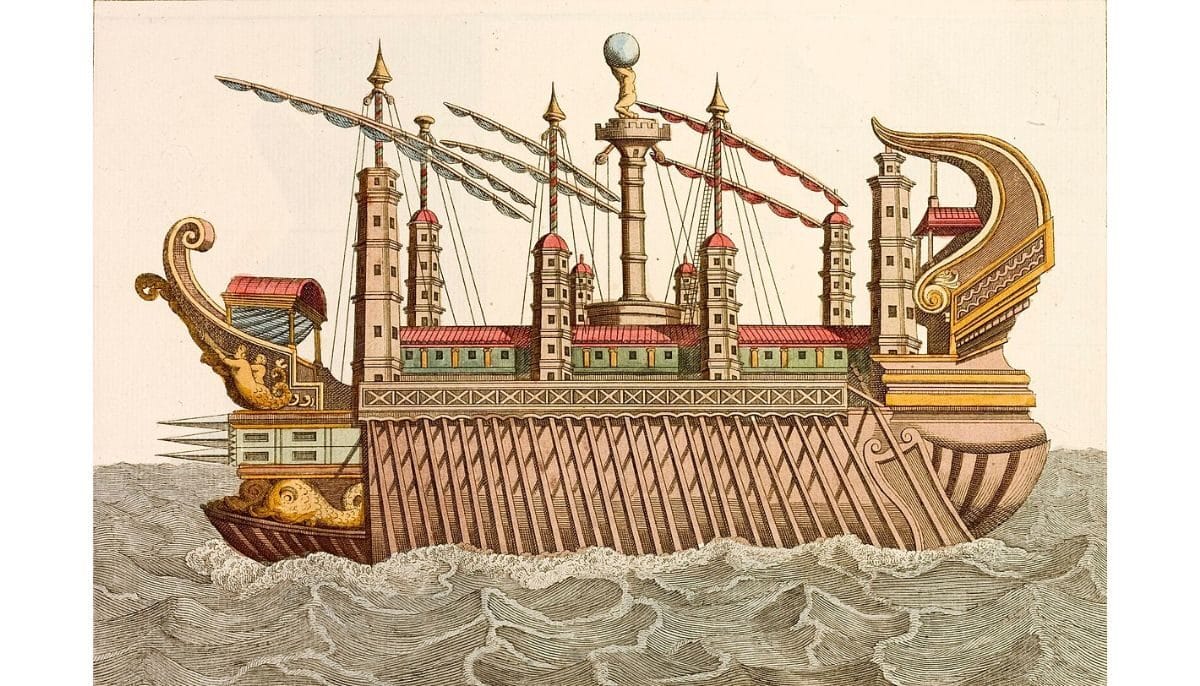
Caligula was known for his love of extravagance and desire to indulge in the finer things in life. He wanted to create a space where he could escape from the pressures of ruling and revel in pleasure. That’s why he ordered the construction of the two floating pleasure barges.
The barges were built on the small volcanic Lake Nemi, which is located about 30 kilometers from Rome. They were massive structures, each measuring almost 250 feet long and 80 feet across.
The ships were fitted out with all the Imperial decadence that one could imagine, including marble bathhouses, gardens, and even a temple dedicated to the Goddess Diana.
Caligula would use the barges to host wild orgies for himself and his guests. The ships also had lavish banqueting halls, where the Emperor would feast on delicacies and drink the finest wines. He would often invite his closest allies and friends to join him on the ships, creating a sense of exclusivity and camaraderie.
9. Murdered a Man For Being Handsome – Then Forced His Father To Toast the Emperor
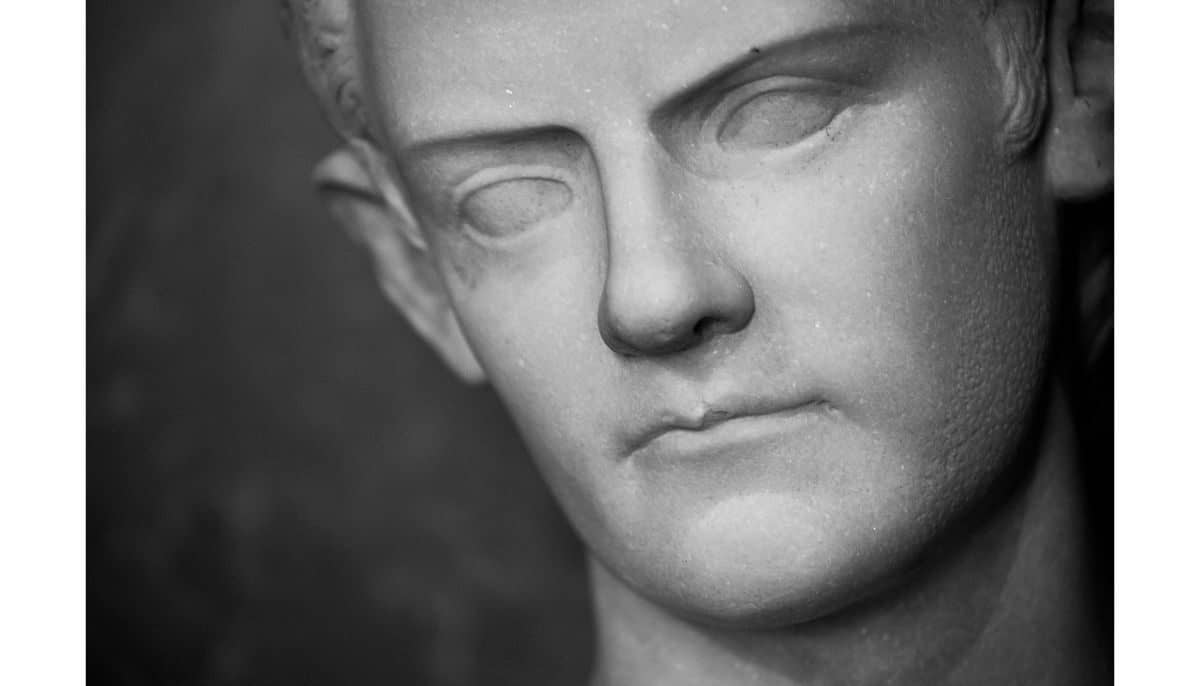
It is said that Caligula was so vain and obsessed with his own appearance that he could not bear the sight of another man whom he deemed more attractive than himself.
In this case, the unfortunate victim was singled out for his good looks and was promptly detained without trial or explanation.
Desperate to save his son’s life, the victim’s father pleaded with Caligula for mercy. However, the Emperor remained unmoved and proceeded to execute the young man in cold blood.
Caligula forced the victim’s father to dine with him that same night to demonstrate his power and cruelty further and ordered him to toast his good health. The father had no choice but to comply, as any reluctance or dissent would have resulted in his own execution.
10. Considered Himself a God
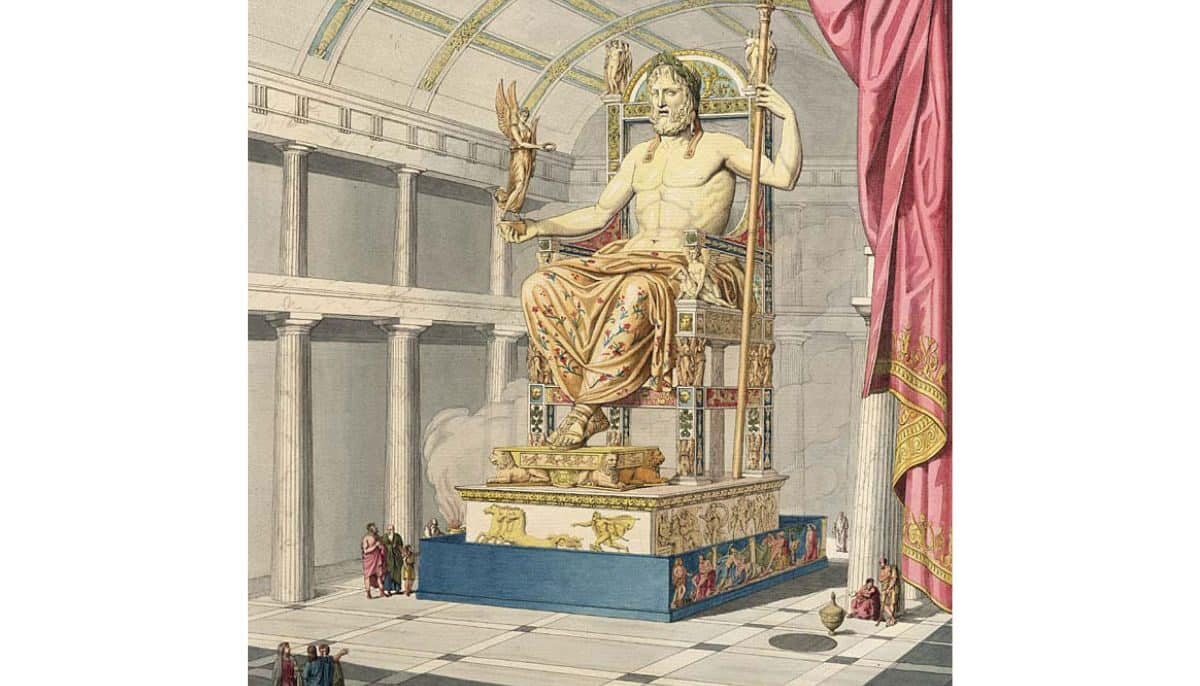
Caligula’s belief in his own divinity was not just an abstract concept but had tangible consequences. He took great care to ensure that everyone in the empire recognized him as a god, which meant that he demanded an extraordinary level of respect and worship from his subjects.
For example, Caligula built a bridge of boats across the Bay of Naples just so he could ride over it in his chariot, a spectacle he believed worthy of a god.
He would also walk through the streets of Rome accompanied by a retinue of guards and courtiers, insisting that the people he passed bow and offer prayers of devotion.
Caligula’s insistence on being worshipped as a god also extended to his private life. He would often dress up in elaborate costumes, such as those of Apollo or Jupiter, and parade around the palace.
Caligula also began to replace the heads of statues with his own head. He even planned to replace the head of the massive statue of Zeus at Olympia.
Caligula’s attempts to replace the heads of sacred statues with his own reflected his megalomania. This brazen attempt to usurp the gods’ power and authority was seen as a direct challenge to the established order, and it enraged many Romans.
Are These Claims Believable?
So are these facts about Caligula true? All these stories are part of the infamous legend that surrounds Caligula. He is remembered as one of Rome’s craziest Emperors. However, more modern inquiry into the ancient sources cast doubt on this view.
Suetonius and Dio, two critical sources for these stories, were writing generations after Caligula’s assassination. Critically they were writing at a time when it would be politically prudent to disparage the Julio-Claudian dynasty.
In particular, the accusations of sexual perversion and immorality are a common trope against unpopular Roman Emperors.
While Caligula was unlikely a model citizen, it should cast doubt on the more lurid and fanciful claims.
